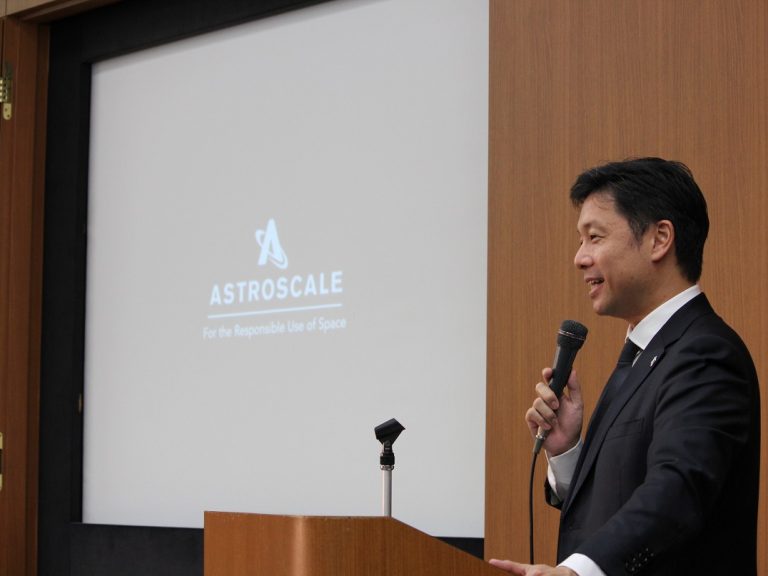Nobu Blogs: The Decade for Sustainability on Earth and Beyond
Hey there fellow Space Sweepers,
Happy Holidays! As we prepare to start a new decade, the world is more focused than ever on the issue of sustainability, both terrestrial and orbital. People recognize that sustainability is not just for the long-term health of the planet but has near-term consequences on many aspects of daily life, from business to health to global security.
A big decade for the SDGs
With the start of 2020, the 10-year countdown begins for the world to reach the targets set out by the United Nations in its 17 Sustainable Development Goals (SDGs) by 2030. There has been a constant wave of news in 2019 about organizations committing to the SDGs to address the world’s most pressing problems and it will only grow over the coming decade.
We live in a world with many competing priorities and, unfortunately, environmental campaigns like the SDGs have often been met with skepticism from the general public, with many assuming economic interests take precedence over environmental concerns. The fact is though, that the two issues are directly connected – practicing sustainability brings significant positive outcomes for business. Many corporations realize this and are taking implementation of the SDGs seriously. Nowadays you can’t miss the SDG color wheel pinned to lapels at events and conferences throughout the world.
A sustainable Earth cannot exist without sustainable space
As the global community embraces this huge task of meeting the SDGs in the next decade, there is also a growing recognition that space technologies will be key in achieving them. The data we receive from space provide information that can help to monitor activities, measure progress and support proactive solutions that are necessary to fulfilling sustainability goals. In order to improve the quality of our planet for future generations, we need to ensure that the services we receive from space are protected.
This year alone significant steps were made. The United Nations Committee on the Peaceful Uses of Outer Space (COPOUS) approved the 21 Long-Term Sustainability Guidelines. We also saw the newly formed Space Safety Coalition, a group which includes Astroscale and 35 other organizations as members, endorse a set of best practices which encourage responsible behavior in space. The World Economic Forum also selected a consortium of companies, agencies and universities to develop a system to rate the sustainability of space systems and increase the transparency of organizations’ debris mitigation efforts.
Astroscale is making key contributions toward sustainability
Here at Astroscale we are closely following progress on SDGs and are directly involved in all aspects of the efforts for orbital sustainability. We are focused on creating a technical solution but are also working every day on the policy and business case aspects that will lead to clearing the orbital highways. We made significant progress on articulating the business case and contributing to policy discussions in 2019 and, as evidenced by our continued funding rounds, the last of which we closed earlier this year, investors recognize that a viable market for debris removal service is just around the corner
Now, in 2020, we will take a major step towards demonstrating our technical solution and will put our years of hard work to the test as we launch ELSA-d, our technology demonstration satellite. The end of 2019 finds ELSA-d assembled and going through testing at JAXA Tsukuba Space Center. We’ll be welcoming the satellite back to our office in Tokyo later this spring for final check-out before sending it on its way to the launch site.
The launch of ELSA-d later in the year will be an essential step as we make debris removal a routine service in the future, but that is only one piece of a complex puzzle.
The issue of sustainability stretches far beyond our blue marble and the global space community has a chance to be a role model for the world on how people can work together to show real progress toward long-term sustainability.
The future is now
My dream is that the global space community is now ready to take the lead in international cooperation and demonstrate how we can achieve huge goals which will benefit humanity and future generations. At Astroscale we are prepared to take on this responsibility.
Our team is ready to devote the time to make this vision a reality. While it is important to use time wisely, save money and work efficiently, we don’t cut corners or take shortcuts to achieve our goals at Astroscale. Solving big problems takes a lot of time and financial investment, but as long as we are clearly and properly following a process, working together and addressing the whole problem, we will realize space sustainability. And this will positively impact global sustainability.
Thank you to the incredible Astroscale team (of over 100 people now!) and thank you to our supporters around the world. Welcome to a new decade. I’m so thrilled for the year ahead and to have the Space Sweepers with me for the ride!
Nobu

 Visit U.S. Site
Visit U.S. Site




